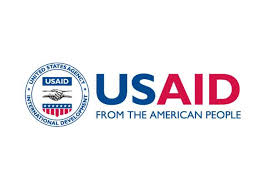At first glance there is no connection between the fear of climate change and the fear of global infectious disease pandemics. When it comes to climate change most disease scare stories focus on things like malaria, which is not infectious.
But the ever-inventive US Agency for International Development has found what they say is a link. Well it is not so much a link as a co-occurrence in the developing world. Given that USAID doles out about half of all US foreign aid, or around $20 billion a year, this goofy program is something to be concerned about.
It is all about land use policy, especially what the enviros call deforestation. This is scary sounding all by itself, but what it often refers to is people clearing land for food production. Calling it farming makes it sound a lot saner, so the greens do not call it that.
Deforestation is a big deal in the climate change agenda, because it tends to produce greenhouse gases. In fact in really poor countries land use is likely to cause a lot more GHG emissions than fossil fuel power production, because there is so little electricity. There are however a lot of people to feed.
Apparently land use can also help spread new infectious diseases. As a result, USAID has what it calls the Infectious Disease Emergence and Economics of Altered Landscapes program. The target of this less than IDEEAL program is land use policies in developing counties.
Here is how the program explains it: “Over 60 percent of emerging infectious diseases over the past six decades—from SARS to Ebola and HIV—have originated in animals, with nearly half linked to land use change, agricultural intensification or changes in food production. Land alterations accelerate the pace and diversity of human and animal contact, enabling pathogens to spill over from animal populations, a first spark in the chain of events that ignite global pandemics. Deforestation and forest degradation account for between 14 to 17 percent of greenhouse gas emissions, equivalent to the entire global transportation sector. A key strategy in reducing the dual threats from diseases of pandemic potential and climate change is a robust evidence base that accurately captures the value of ecosystems, including their critical role in regulating disease.”
So apparently things like agricultural intensification or changes in food production are bad policies, which need to be resisted, in the name of preventing pandemics and climate change. Surely feeding people comes first.
The IDEEAL program specifically calls for USAID to use its enormous power to “Influence land use policies.” Here is how they put it:
“Emerging infectious disease of pandemic potential and unchecked climate change threatens social and economic stability and represents significant impediments to sustainable development. Capturing the economic impact of disease emergence presents an opportunity to promote sustainable land use policies to mitigate these threats, leveraging USAID’s partnerships and expertise developing solutions to pressing development challenges.”
The message seems to be that the agriculture needed to feed growing populations, maybe even to raise their standard of living, is not seem as “sustainable.” In this case it is not sustainable because of the fear of climate change and pandemics. Surely this is just nuts.
USAID’s goal should be real development, not this kind of spooky anti-development.
